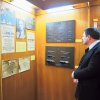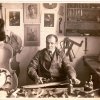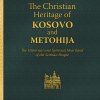У родном месту научника и проналазача Михајла Пупина (1854-1935) јуче је представљена изложба виртуелног музеја на адреси www.mihajlopupin.rs, која ближе описује однос Пупина са Николом Теслом. Изложба представља једну од активности којима ће 2014. бити обележено 160 година од Пупиновог рођења. . Виртуелни музеј који је почео са радом у мају ове године одаје почаст Пупину – почасном доктору 18 универзитета, добитнику Пулицерове награде за аутобиографију Са пашњака до научењака (чији делови су били обавезна лектира у америчким школама) и почасном конзулу Србије у САД. Посетиоци имају прилику да се упознају са животном причом српског велика кроз неколико целина: путовања кроз Идвор, Америку, професорски рад, признања, аутобиографију, научни рад, национално-политички допринос, легат у Народном музеју, легат Универзитетској библиотеци, доброчинствима. Такође, сајт www.idvor.rs доступан је посетиоцима на српском, енглеском и француском језику.
Изложба потцртава сличности Пупина и Тесле – однос са мајкама које су им биле велика подршка и узори, подсећа на њихова духовна искуства и ставове према традицији будући да су обојица црпела из народног стваралаштва и сматрала да судбина једног народа није вођена само напорима изузетних људи, већ и снагом традиције те земље.
Оба научника су били велики поштоваоци уметности. Тесла се дивио делу Лазе Костића и преводио је песме Јована Јовановића Змаја, а Пупин је слушао савете сликара Уроша Предића о томе која дела треба да одабере и остави као поклон својој земљи.
Извор: Политика, 6. 10. 2013.





